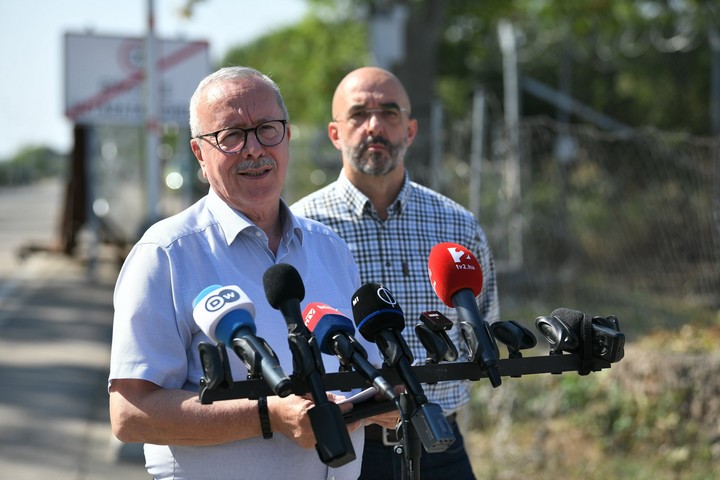Compared to previous years, the number of apprehended border violators has increased significantly this year, the proportion of Afghan citizens is increasing, and the activities of people smugglers are becoming more and more intense, Röszké, the prime minister's chief adviser on internal security, said on Wednesday.
György Bakondi said at the press conference held at the road border crossing in Röszke that 21,992 border violators had been caught by the middle of September last year, and 73,617 this year. He added that proceedings were initiated against 719 human traffickers this year, compared to 274 last year.
György Bakondi explained that the flooding of the continent in 2015 was caused by mistaken political statements. In addition, Hungary and its government had to withstand serious communication attacks because it was protecting Europe's borders. These processes had serious political, security and social effects, which can still be experienced in Europe today.
Due to the construction of the technical border barrier, Hungary has been attacked despite the fact that fences were previously built in many European countries, first on the Spanish-Moroccan border in 1993 and 1998, and most recently this year in Poland and Lithuania on the Belarusian border.
Thanks to the measures introduced in 2015, the number of border violators decreased continuously until 2018, but after that it started to increase again. In six years, more than 591,000 border violators and 3,027 people smugglers were apprehended, 211,000 refugee applications were adjudicated, and 2,837 of the applicants received international protection. 67 crossing tunnels were discovered under the border, of which 32 were not completed. There were ten violent attempts to cross the border, the migrants typically threw stones at the police and soldiers, and damaged technical equipment.
Zoltán Kovács, the state secretary responsible for international communications , recalled that six years ago, hundreds of migrants armed with stones and sticks tried to force their way into Hungary at the Röszke crossing. The number of border violators caught and the trends show that we are worse off than six years ago. The problems arising from migration are here with us, which is why questions on this topic were also included in the eleventh national consultation. He added that more than 1.4 million respondents confirmed the anti-migration attitude of the Hungarian government.
Migration was one of the central issues of the Hungarian-Serbian government meeting, as it will also be among the topics of the faction meeting of Fidesz starting on Wednesday evening. The borders of Europe, the primary line of defense for stopping the wave of migration, are the Hungarian and Serbian borders, the politician emphasized. He pointed out that since there is no chance of a unified and rational European immigration policy, the best place for it is with the member states.
Source: MTI












